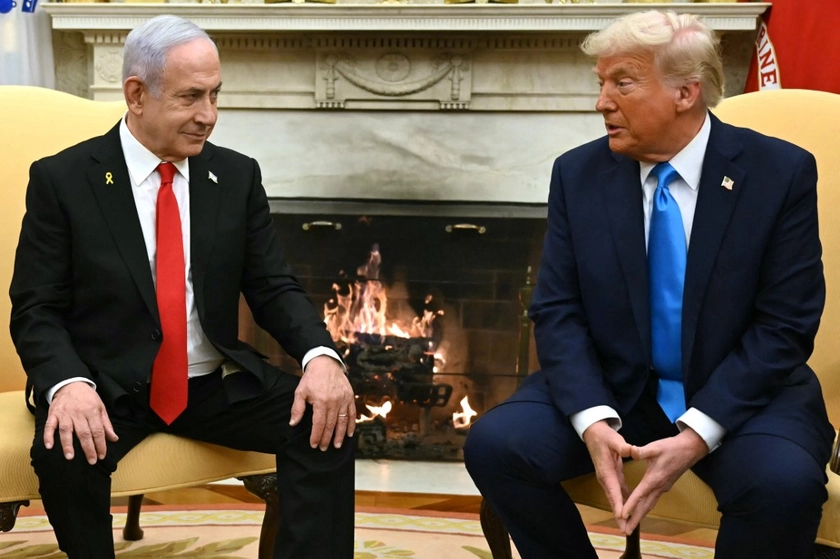On Jan. 22, we remember two very important events in Ukraine’s modern history: the 106th anniversary of the declaration of Ukraine’s independence in Kyiv by the country’s parliament of that time, the Central Rada, and the 105th anniversary of the Act of Union agreed to by the Ukrainian People’s Republic and the West Ukrainian Peoples Republic
While the first of them is certainly acknowledged, unfortunately it is still not recognized officially as befits its significance, especially, given Russia’s current war to destroy Ukrainian statehood and identity, and Putin’s absurd claims that the Ukrainian state was created as a result of Lenin’s erroneous policies.
JOIN US ON TELEGRAM
Follow our coverage of the war on the @Kyivpost_official.
Undoubtedly, Jan. 22, 1918, remains the key date associated with the establishment of a modern independent Ukrainian state. It should therefore be the main date on which Ukrainian independence is celebrated.
In 1918-20 Ukrainians fought bravely to secure their independence against Russian “White” and Red” forces and were eventually defeated by the Bolsheviks and their Red Army. Soviet rule was imposed on most of Ukraine for the next 70 years or so.
Although the country was nominally an independent Soviet republic which had “voluntarily” become part of the “Soviet” – read Russian-dominated – communist federation – the USSR, it remained in essence a Russian colony.

Trump Says He Could Pressure Russia, Prefers Not To
During the Soviet era Ukraine’s declaration of independence in 1918 and its recognition in February of that year by the Central Powers- Germany, Austria-Hungary, Bulgaria, Turkey and the following month even by Soviet Russia, was deliberately obscured. In the large Ukrainian diaspora, Jan. 22 was celebrated each year as Ukrainian Independence Day.
When the Soviet system was collapsing, for various – mostly political – reasons the significance of Jan. 22, 1918, was deliberately fudged over by the communist majority in the Soviet Ukrainian parliament. When forced on Aug. 24, 1991, to proclaim Ukraine’s independence, it did not want to acknowledge the fact that Ukraine was reaffirming the independence that had been declared by its democratic and non-communist Ukrainian parliament in 1918.
Instead, of emphasizing the elements of continuity, renewal and restoration, the communist deputies sought to maintain the fiction that they themselves had created an independent Ukrainian state for the first time.
Consequently, for over 30 years in independent Ukraine, August 24 was celebrated as the country’s Day of Independence
The importance of what had occurred on Jan. 22, 1918, was shrouded by focusing on what had happened exactly a year later. On Jan. 22, 1919, the union of central and western Ukraine was proclaimed by the representatives of their respective independent republics even as they were fighting the Russian in the east and the Poles in the west.
Of course, this too is an important historic date. But the celebration of the “Day of Unity,” was fostered under presidents as diverse as Kravchuk, Kuchma, Yushchenko, Yanukovych and Poroshenko in such a way that it continued to overshadow the significance of the declaration of independence in early 1918.
Even in 2018, on the centenary of Ukraine’s declaration of independence, the then “patriotic” president, Petro Poroshenko, failed to accentuate its significance.
This year, President Zelensky has again not emphasized that independence was declared by Ukraine in early 1918 and the attempt to unite western and central Ukraine in one sovereign state followed logically a year later.
Moreover, the World Congress of Ukrainians (WCU) also seems to have given up in asserting the importance of the first declaration of independence. In its press release related to Jan. 22, 2024, it restricts itself to Kyiv’s official narrative, that this is Ukraine’s Day of Unity celebrating what occurred in 1919.
Have its leaders forgotten that on 22 Aug. 1992 the head of the Ukrainian government in exile representing the legacy of 1918 – Mykola Plaviuk – formally ceded his authority and symbolic attributes to the president of post-Soviet independent Ukraine, Leonid Kravchuk. stressing that it was the lawful successor to UNR.
This “forgetful,” and in essence irresponsible concession to forces that have sought to revise and distort Ukraine’s modern history – is an unacceptable mistake that needs to be rectified.
Russia’s war against Ukraine, buttressed by the absurd imperialist arguments – revived by Putin and his chauvinist ideologues and propagandists – that Ukrainians don’t exist as a distinct nation and have no right to self-determination, statehood, their own language, culture or history, or identification with the rest of Europe, should force us to review the approach to Ukraine’s modern history by its own leadership.
Breaking free from Russia’s imperialistic stranglehold necessitates confronting and purging Ukraine of Russian historical and cultural narratives that have been imposed for centuries and thwarted the development of Ukraine’s self-identification and proper understanding of it abroad.
In 1918, the Ukrainians opted for independence and democracy – Western-style. Russia chose totalitarian Bolshevism and aggressive anti-democratic communism. For Ukrainians, this should serve as an important source of pride and inspiration.
The students and cadets that went out to defend Ukraine’s newly proclaimed freedom from Russian Bolshevik invaders and heroically faced death at Kruty on Jan. 29, 1918, obviously appreciated the importance of what had been declared in Kyiv by Ukraine’s democratic parliament a week earlier.
In short, without detracting from the importance of Aug. 24, 1991, in Ukraine’s history, Jan. 22 should also be observed as a state and public holiday – as the date on which modern independent Ukraine was born and a year later sought to consolidate itself in one united democratic European state.
This article is based on an earlier version from 2023 that can be read here.
You can also highlight the text and press Ctrl + Enter











